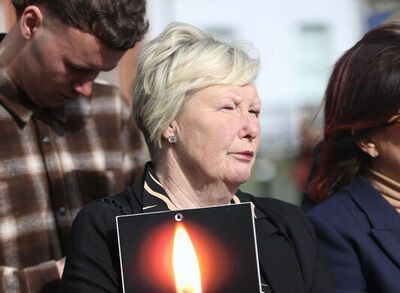Loïc Bléjean and Tad Sargent.
By Daniel Neely
It’s great to hear albums from musicians who are able to strike a balance between the approach of a traditional player and the more raucous influence of rock and roll. It doesn’t happen that often, but I’m fortunate to have been listening to one this week! I’m writing, of course, about the new self-titled CD from Loïc Bléjean (uilleann pipes, low whistle) and Tad Sargent. Featuring uilleann pipes & whistle (Bléjean) and bouzouki, bodhrán & vocals (Sargent), it makes a hard exuberant statement with a sort of energy that is very much in the vein of a group like Lúnasa or the Bothy Band.
Bléjean comes from Brittany. He learned about piping from Alain Le Hegarat and later, Brendan Ring, but he picked up elements of his style over the years during his many rambles in Ireland. He’s been a member of several groups including the pop-rock band “Glaz," the French Canadian band “Gwazigan,” and the fest-noz group Carré Manchot; he’s toured as a duo with his brother button accordionist Ronan and with concertina player Louisa Bennion; he’s also branched out into the world of jazz with the Keltic Tales Quartet. Further, he is co-founder of the Irish Rendez Vous Music Festival in Brittany with his brother. Americans might know Bléjean from his many visits to New York City and his several residencies at McGurk’s in St. Louis.
Born in London to a family from County Mayo, Sargent got an early start in the music as a youngster on piano. He dropped the instrument in his teens in favor of the bodhrán, and shortly thereafter, the bouzouki. Although there were many who shaped who he is as a musician, he counts Mick O’Connor as a major influence. A longtime member of the group Ranagri, he’s worked with several bands and artists over the years, including Barrule, Celtic Crossroads, Cara Dillon, Luke Daniels, Sylvain Barou and many others. Much of his highest-profile work has taken place in Europe, where he’s been a part of festivals like Glastonbury, the Hop Farm, Cambridge Folk Festival and the Annual Irish Festival in London’s Trafalgar Square, made appearances on TV and radio like the BBC, and entertained at London’s Globe Theater production of Shakespeare’s “The Taming of the Shrew.”
https://youtu.be/UIHJ9QXnYhc
Bléjean and Sargent have great chemistry together and make for a fabulous pair, as evidenced throughout this great album. Their approach is characterized not only by full-on playing, but by sophisticated melodic deconstructions that add that bit of “rock and roll” to their traditional way of playing. This is heard on tracks like “Fromage Antics” and “Irish Rendez-Vous,” both of which are high octane instrumental offerings that will thrill many. Sargent, in particular, brings wonderful rhythm to these tracks.
However, they also offer much in terms of power and intensity when they bring the tempo down. A full arrangement that includes the addition of Sylvain Barou on flute sets “Set for Biddy” apart from much else that is on the album – it’s a taught, outstanding track that comes alive as it wears on. Similarly, Bléjean’s approach to the slow air “Sliabh na mBhan” is scintillating, but it is the addition of a Hammond organ to the arrangement (played by Jean-Baptiste Boclé) which gives this track a unique, almost “prog-rock” feel.
Although Sargent brings great drive to the album’s instrumental tracks, his vocal feature on “Missing You” “Beeswing,” and “Dunnes Stores Girl” add some lovely variety. Sargent sings with a powerful, resonant voice that carries a tinge of heady romanticism. His interpretation of “Beeswing” is lovely, as is his approach to “Missing You,” which conveys well the sense of longing in the song’s lyrics. (Incidentally, Bléjean does is great in the supporting role on “Missing,” where he approaches his pipes as if they were an electric guitar and takes a very expressive, dynamic solo full of wrought emotion toward the end of the track.)
This album from Bléjean and Sargent plays from strength to strength. It conveys a “band” sensibility in terms of its consistency overall. Each track reveals Bléjean’s strong, aggressive approach and is a testament to how in control of his instrument he is. Uilleann piping aficionados who love artists who explore the instrument’s expressive extremes will particularly enjoy this about the album. His use of the low whistle adds great depth throughout, as well. Sargent’s bodhrán and bouzouki complement Bléjeans playing very well, but his vocal contributions are what add substantially to the album’s depth. Folks who enjoy good singing will appreciate this about the album. Indeed, it is remarkable how well his singing voice mirrors Bléjean’s piping style in terms of approach. This is a nice listening album from start to finish that will appeal particularly to listeners who love high energy Irish music – definitely worth a listen! For more information, visit blejeansargent.com.










